Promoting healthy behaviors in Sierra Leone’s markets
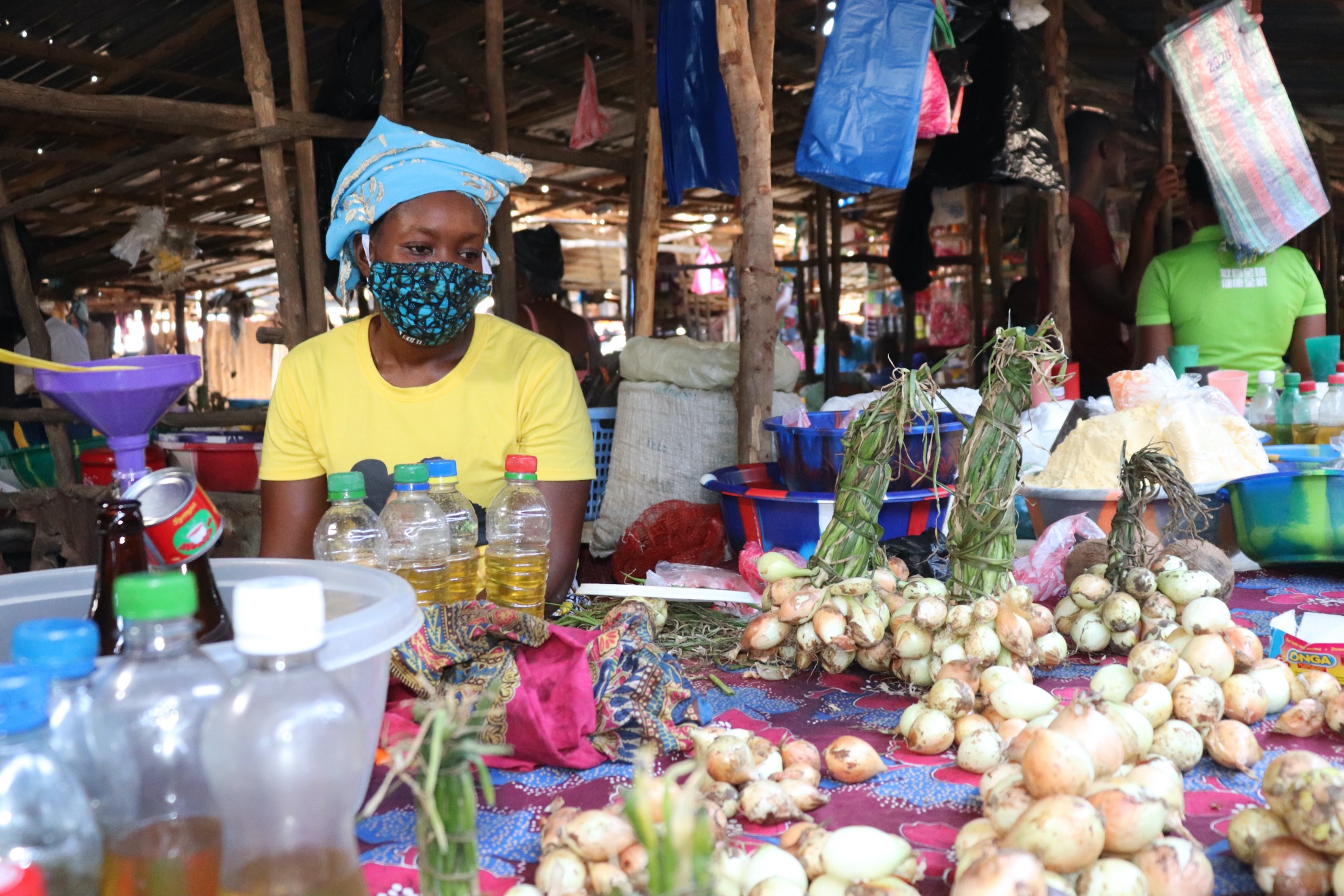
e A vendor wears a face mask we provided.
Before the first case of COVID-19 arrived in Sierra Leone, our teams mobilized to train the communities that use wells we support on the virus and how to prevent its spread. After reaching each water point community, we moved on to other critical areas in communities.
One crucial area is the markets where people go to sell and buy goods. There are more than 3,500 vendors at the seven major markets where we work. They are on the front line of the pandemic. The vendors are at a much higher risk than most people, but they also are potential ambassadors to promote healthy behaviors that will help prevent COVID-19 from spreading further in the country.
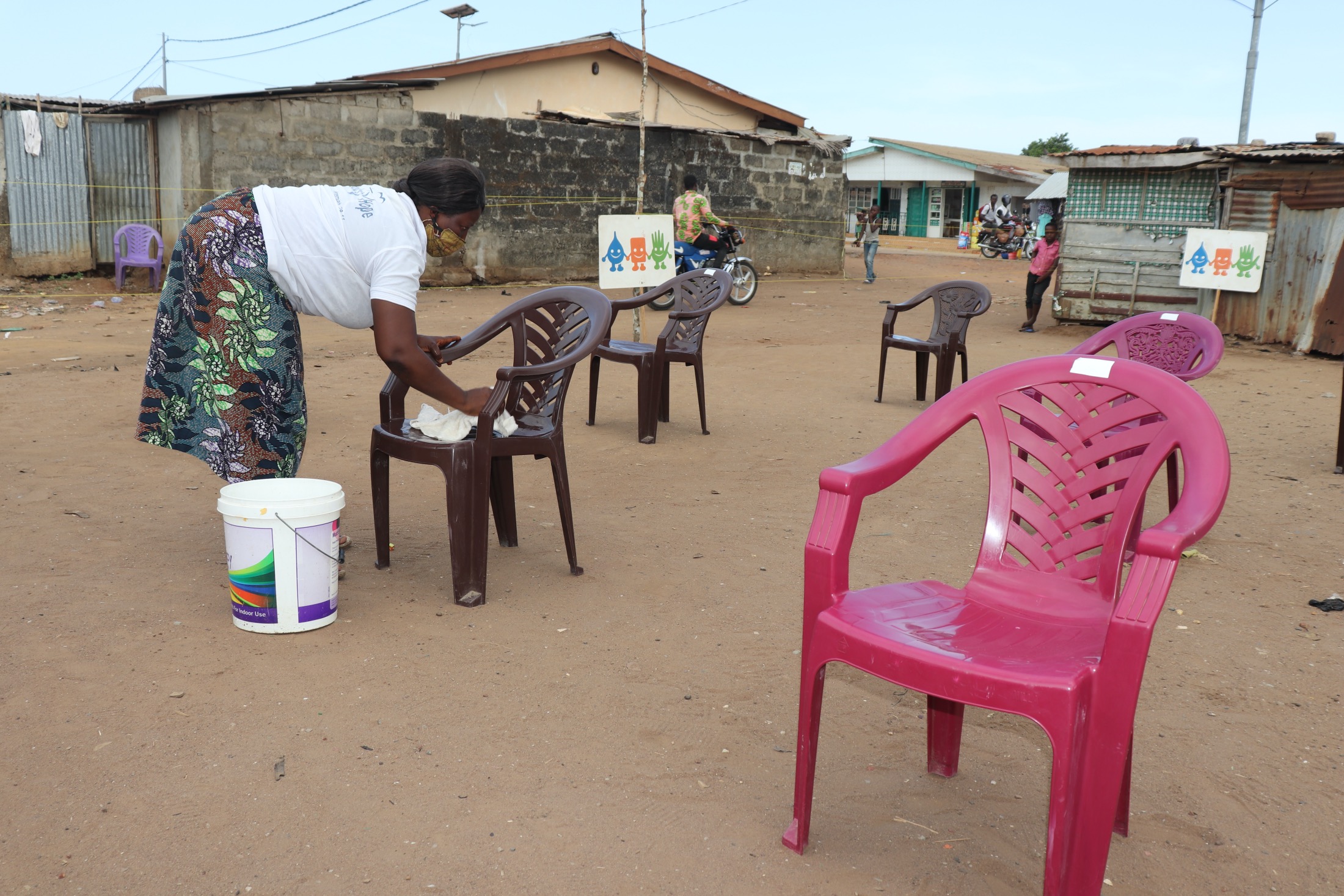
Staff sanitizes chairs between vendor training at the Rotifunk market.
So, we are traveling to each of the markets to hold training with each of the vendors. The first place we visited was the Rotifunk market.
Staff held a meeting to the sensitization with key leaders. In attendance at the meeting were representatives from the Rotifunk Market Traders Association, the Port Loko District Council, the Local Council for Kaffu Bullom Chiefdom (specifically Rotifunk area), the Local Chief for Rotifunk Market area, the Bike Riders Association, the Lungi Youth Association, and the Welfare Society for the Disabled.
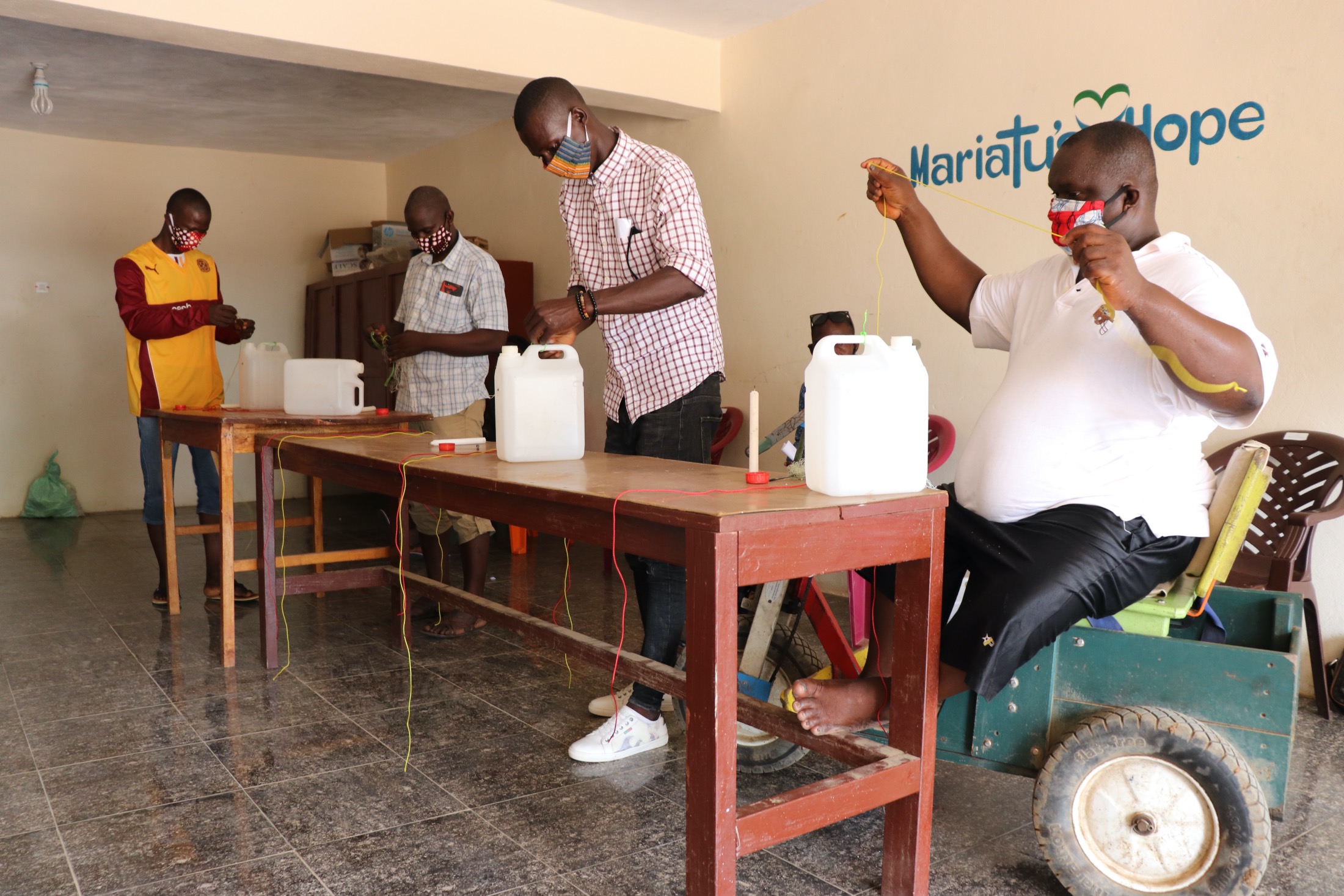
Community leaders construct tippy tap handwashing stations.
The attendees at that meeting learned about COVID-19 and the necessary steps to prevent its spread. They also participated in the construction of tippy tap handwashing stations. The activity accomplished two things: it reminded the attendees how to make tippy taps and helped make the tippy taps to set up throughout the Rotifunk market area. Also, we distributed face masks to all 16 people in attendance. Finally, we collected feedback on our plan for sensitizing market vendors, distributing masks, and setting up handwashing stations at the market.
We agreed to hold a 4-day training from May 13 to May 16 at Rotifunk Market. Five volunteers worked alongside our teams for the four days of training and supported the mask distribution at Rotifunk Market. More than 600 market sellers participated in small-group sessions where they heard about the importance of wearing facemasks, physical distancing, and washing their hands with soap.
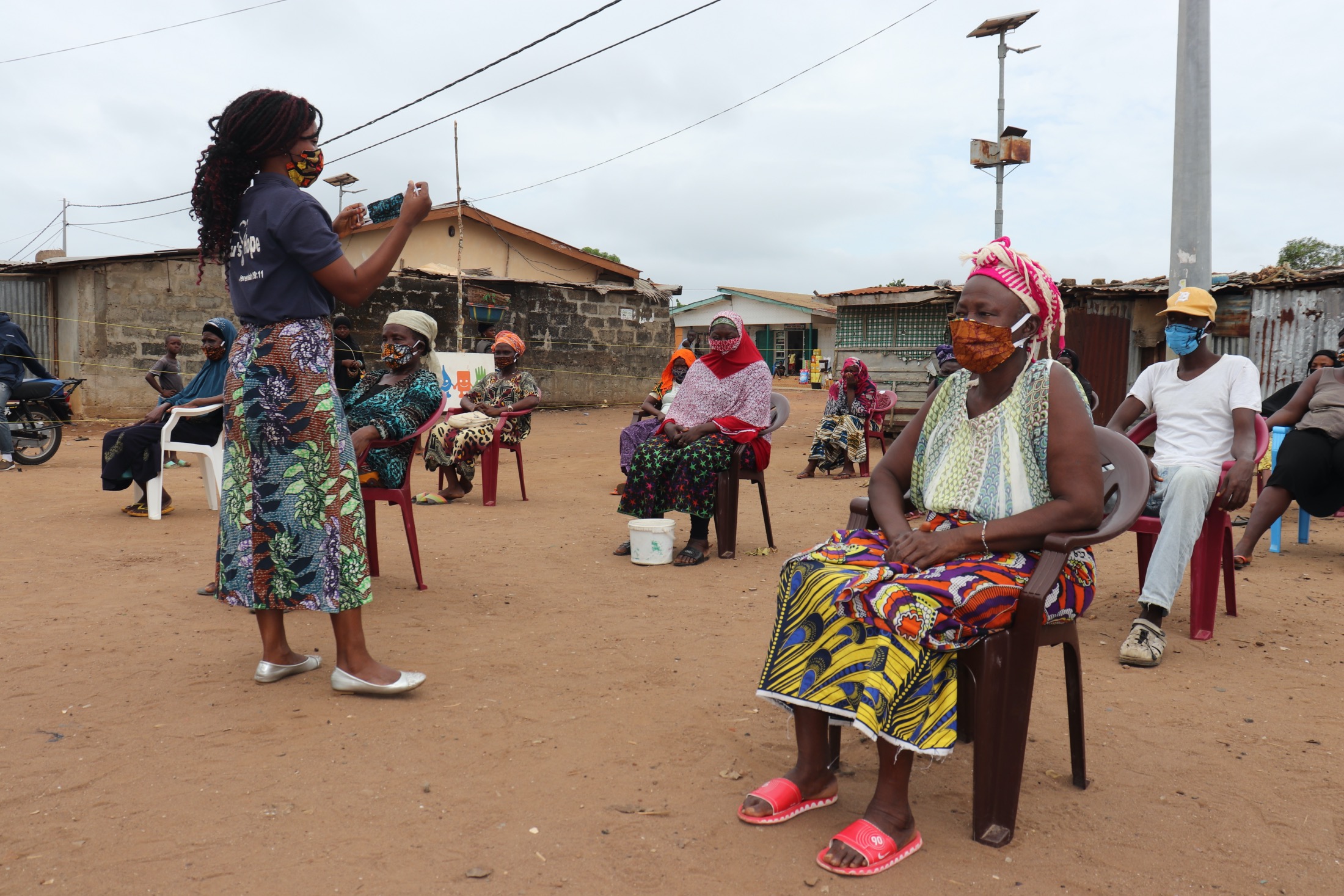
The market vendor training at the Rotifunk market.
Some 670 facemasks were distributed at the event to support the message that vendors wear them while at work. The vendors are also going to monitor the 20 handwashing stations installed throughout the market to ensure that they have soap and water and that people are using them. The vendors appeared open to the messages we shared and agreed to adopt healthy behaviors that will help prevent the spread of COVID 19 – especially handwashing, mask-wearing, and social distancing.
We also experienced some challenges—most notably, children. For most families, children go out to get water and buy things from the market. We encountered many children during our time at the Rotifunk market, and it made social distancing difficult. Also, the children were not wearing masks. We advised the local leaders and officials that older children should be wearing masks and recommended that the market take steps to reduce children who are there. One possible solution is to set an age minimum so that small children are not wandering about the marketplace.
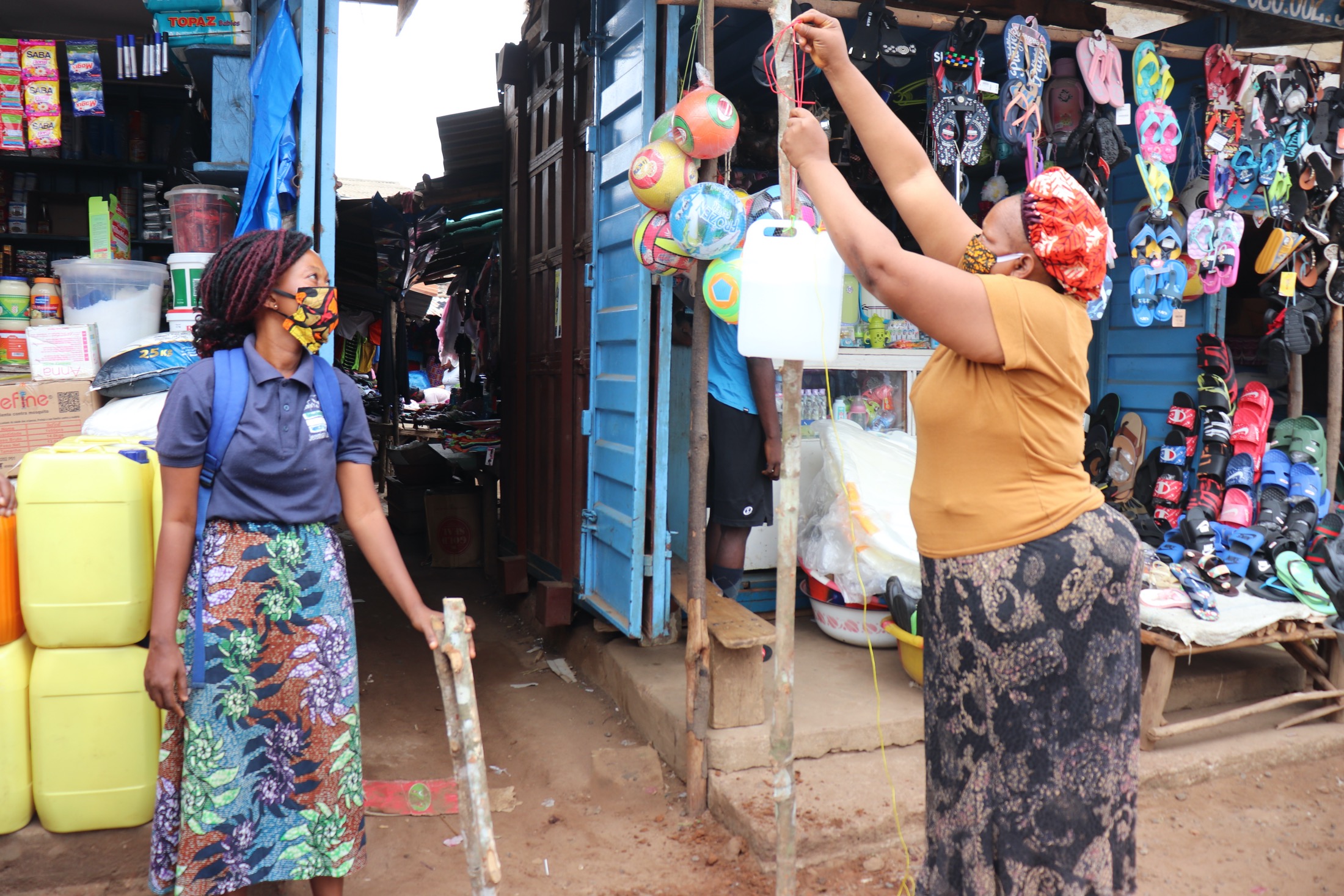
Staff setting up a handwashing station at the market.
Our team arranged a follow-up meeting with the executive of the market sellers to find a solution to the problem and check in on whether vendors are following the lessons they learned. We will also send staff to do unannounced checks on the market to see if the handwashing stations have soap and water. Our team can also monitor whether vendors are wearing masks and if the market is taking steps to promote social distancing.
In the course of the 4-day training, we noticed an increase in handwashing at the market. That was due to the availability of the handwashing stations and the lessons from the sensitization training. We hope that this will continue to improve in the coming weeks. We do all of this work with the hope that vendors can continue to sell their goods while they and their customers remain healthy.
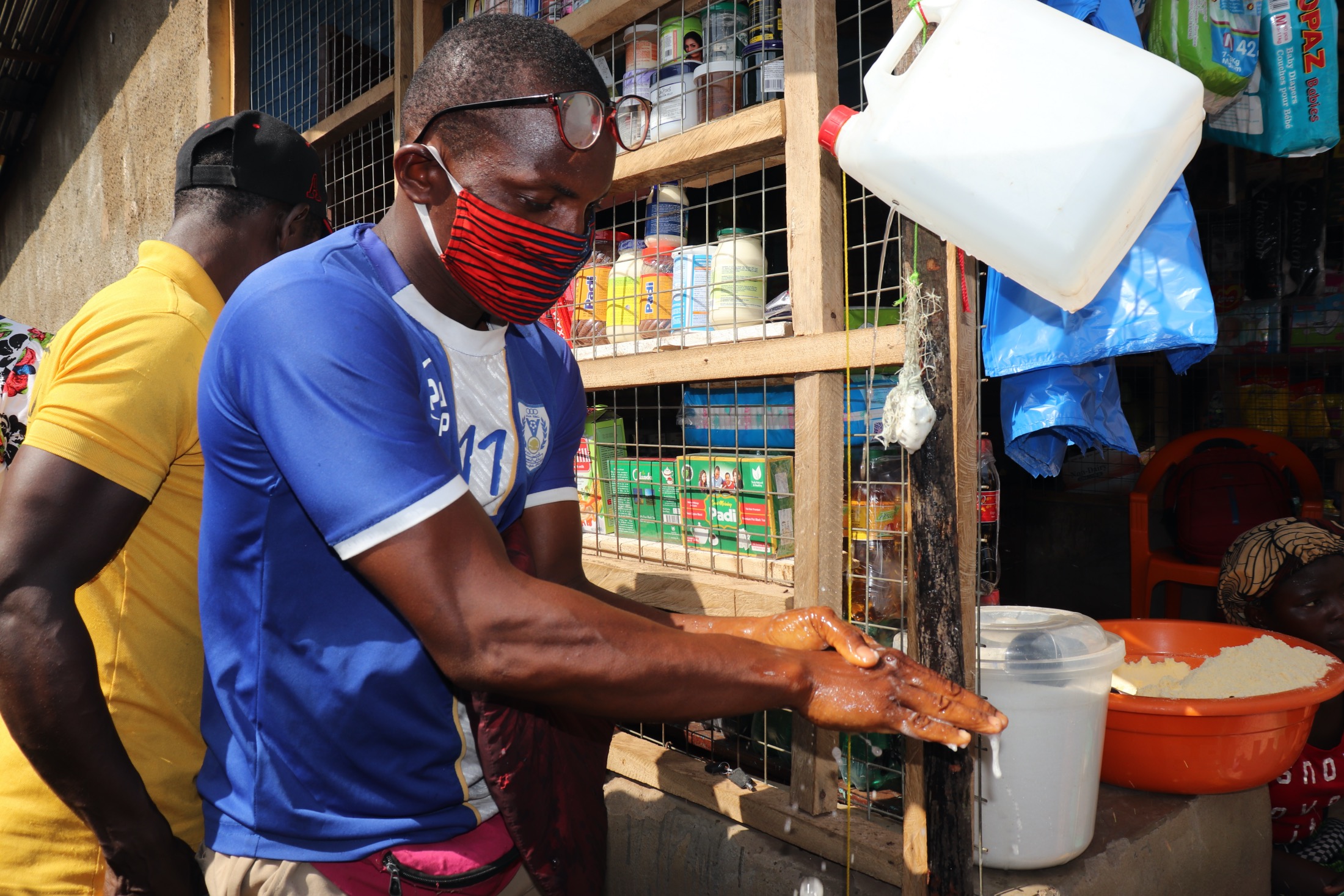
A market vendor uses a handwashing station.
Tweet